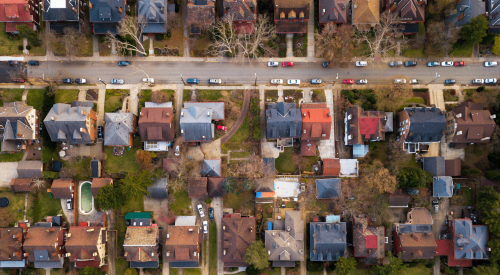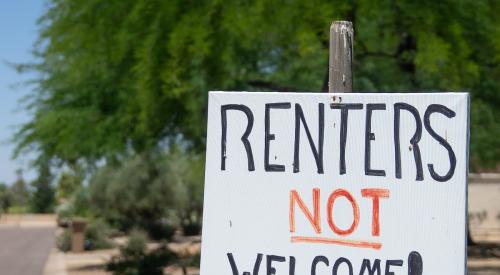A new tool measures the likelihood that a home will be torn down in Vancouver, a trend also creeping into rapidly appreciating U.S. cities and urban neighborhoods.
University of British Columbia professor of architecture Joseph Dahmen, and mathematician of Jens von Bergmann developed a teardown index based on assessment records and municipal data to calculate the probability of a teardown for properties with land valued higher than the single-family home sitting on it. When the relative building value, RBV, drops below 10 percent, the chances for a teardown increase dramatically. Vancouver's current RBV is below 7.5 percent, and the tool predicts that about 25 percent of the detached housing stock will be torn down by 2030, Curbed reports.
Another reason Dahmen and von Bergmann looked at teardowns was to examine the environmental repercussions of these residential replacements. The carbon emission implications of teardowns is significant, and taking the renovation instead of removal route can have significantly better results. Eventually, he wants to factor in more environmental data and begin to examine other cities. If single-family homes were replaced by more efficient, more dense multi-unit developments, the shift could contribute to the effort of Vancouver, and cities like it, to create more sustainable, affordable, and available housing stock.













